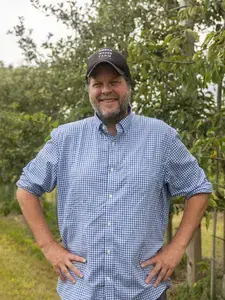Daina Cheyenne Harvey
Associate Professor, Department Chair

Biography
Daina Cheyenne Harvey earned a B.B.A (Finance) and a Double B.A. (Philosophy and Economics) from the University of Texas-Austin, a M.A. (Sociology) from the University of Houston, and a Ph.D. (Sociology) from Rutgers University. He is the author of over 50 articles, chapters, and reviews, and recently the co-editor of Beer Places: The Microgeographies of Craft Beer.
News, Research, & Publications
Raphaella, Mascia, and Daina Cheyenne Harvey. 2024. “Mapping Malus in Massachusetts:
Creating a System for Apple Foraging.” Pp. 254-263 in Urban Food Mapping: Making Visible the Edible City, edited by Katrin Bohn and Mikey Tomkins. New York, NY: Routledge. (https://www.routledge.com/Urban-Food-Mapping-Making-Visible-the-Edible-City/Bohn-Tomkins/p/book/9781032402819?srsltid=AfmBOooEpr10w6xAR6dTqgf32Zxy6y3iJ-JxEI53qaXM0s5CxyICTrI9)
Harvey, Daina Cheyenne, Ellis Jones, and Nate Chapman. 2023. Beer Places: The Micro-Geographies of Craft Beer. Fayetteville, AR: Arkansas University Press. (https://www.uapress.com/product/beer-places/)
Harvey, Daina Cheyenne. 2023. “Eco-uncertainty as a Frame and Way of Life.” Pp. 512-528 in The Oxford Handbook of Symbolic Interaction, edited by Wayne H. Brekhus, Thomas DeGloma, and William Ryan Force. New York: Oxford University Press. (https://global.oup.com/academic/product/the-oxford-handbook-of-symbolic-interactionism-9780190082161)